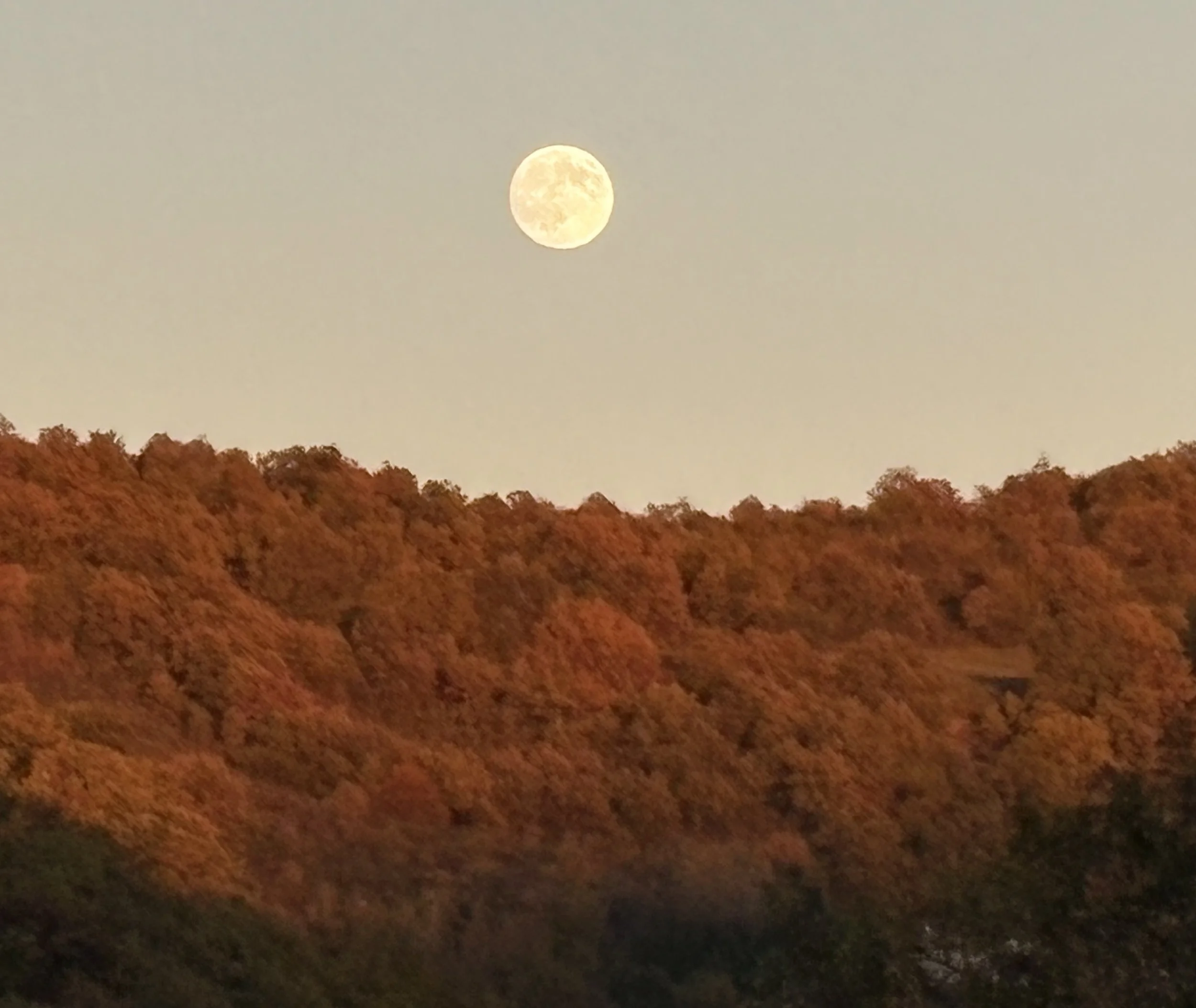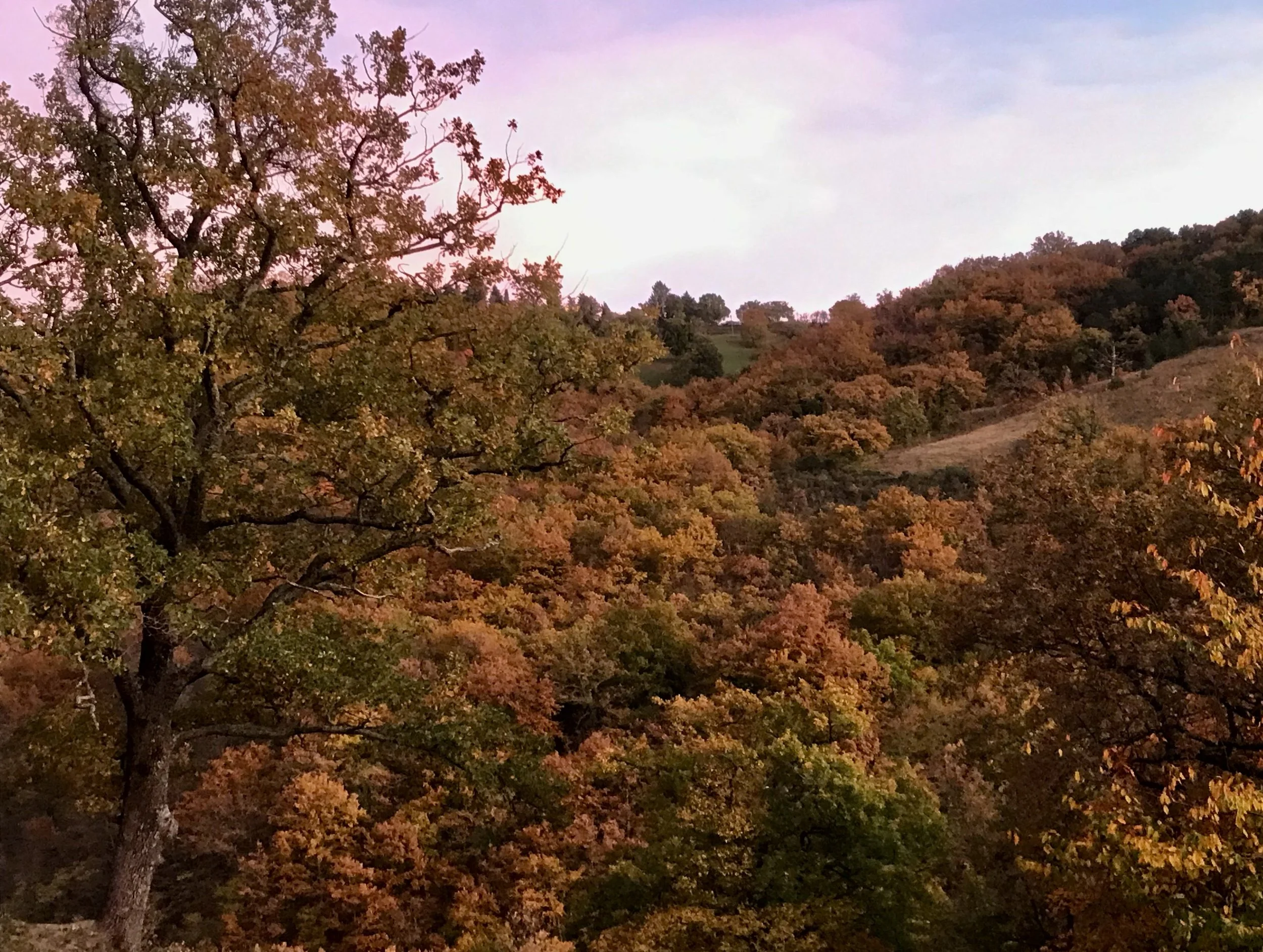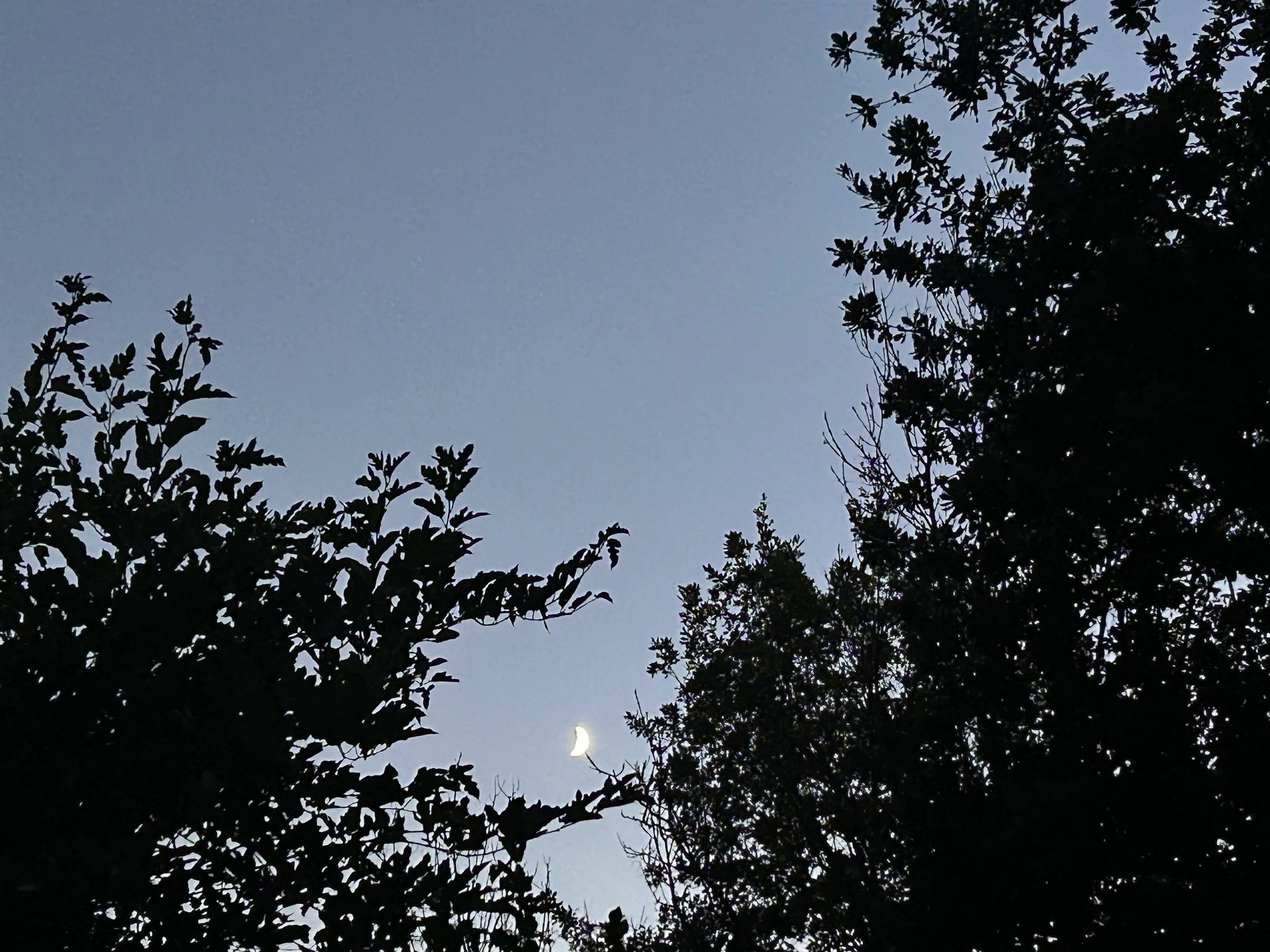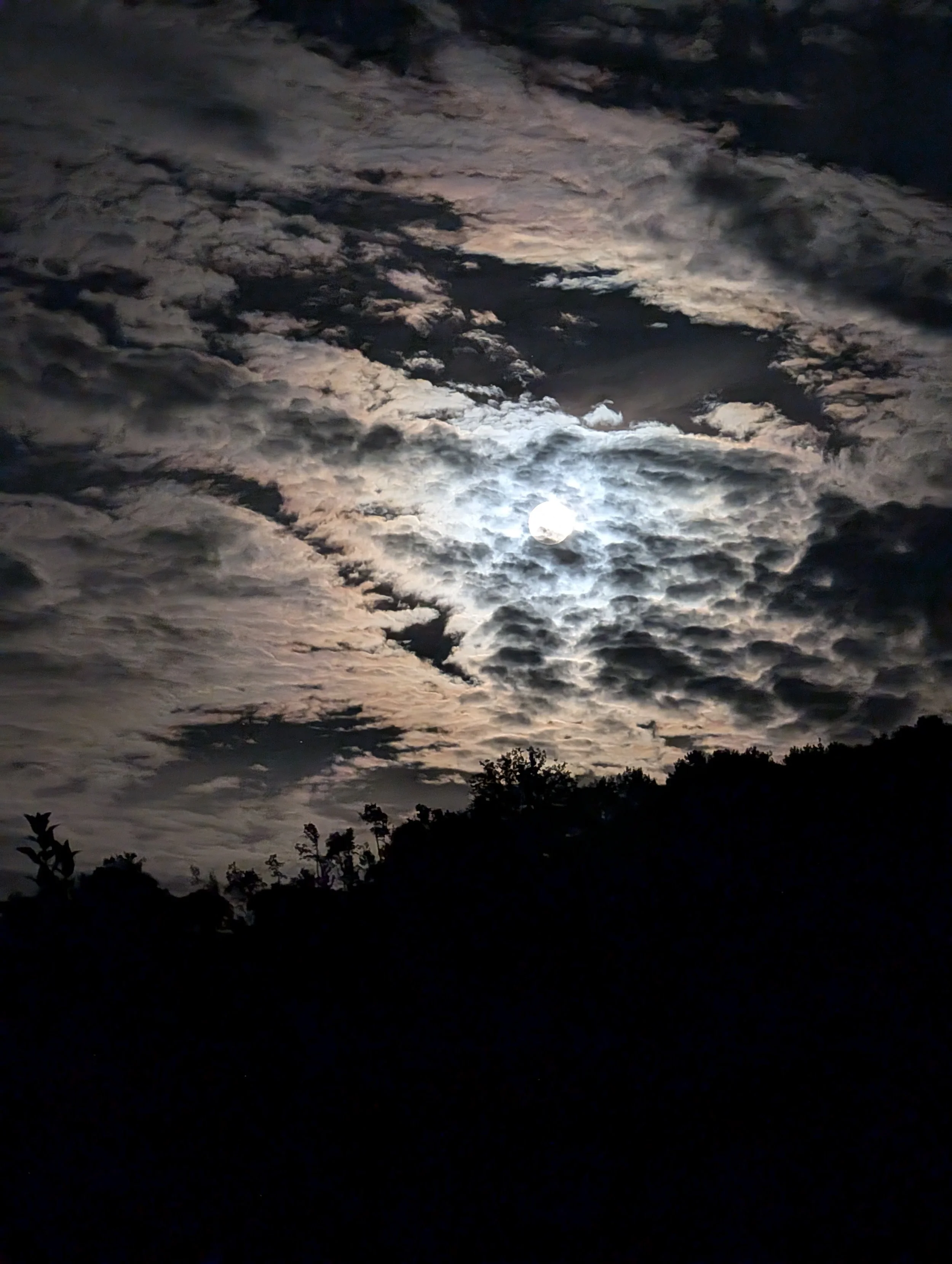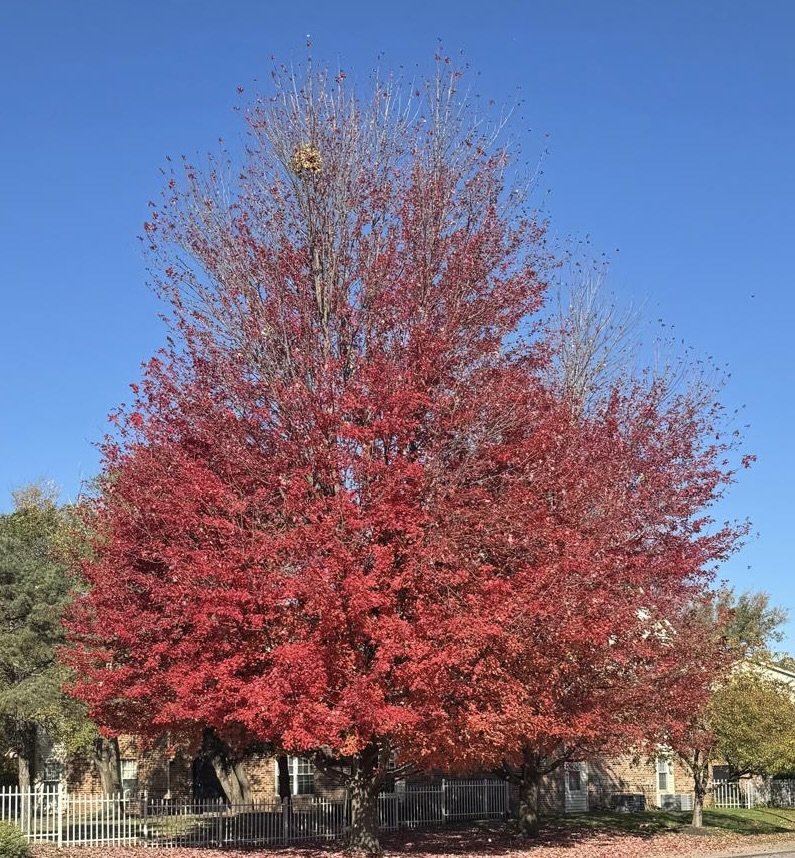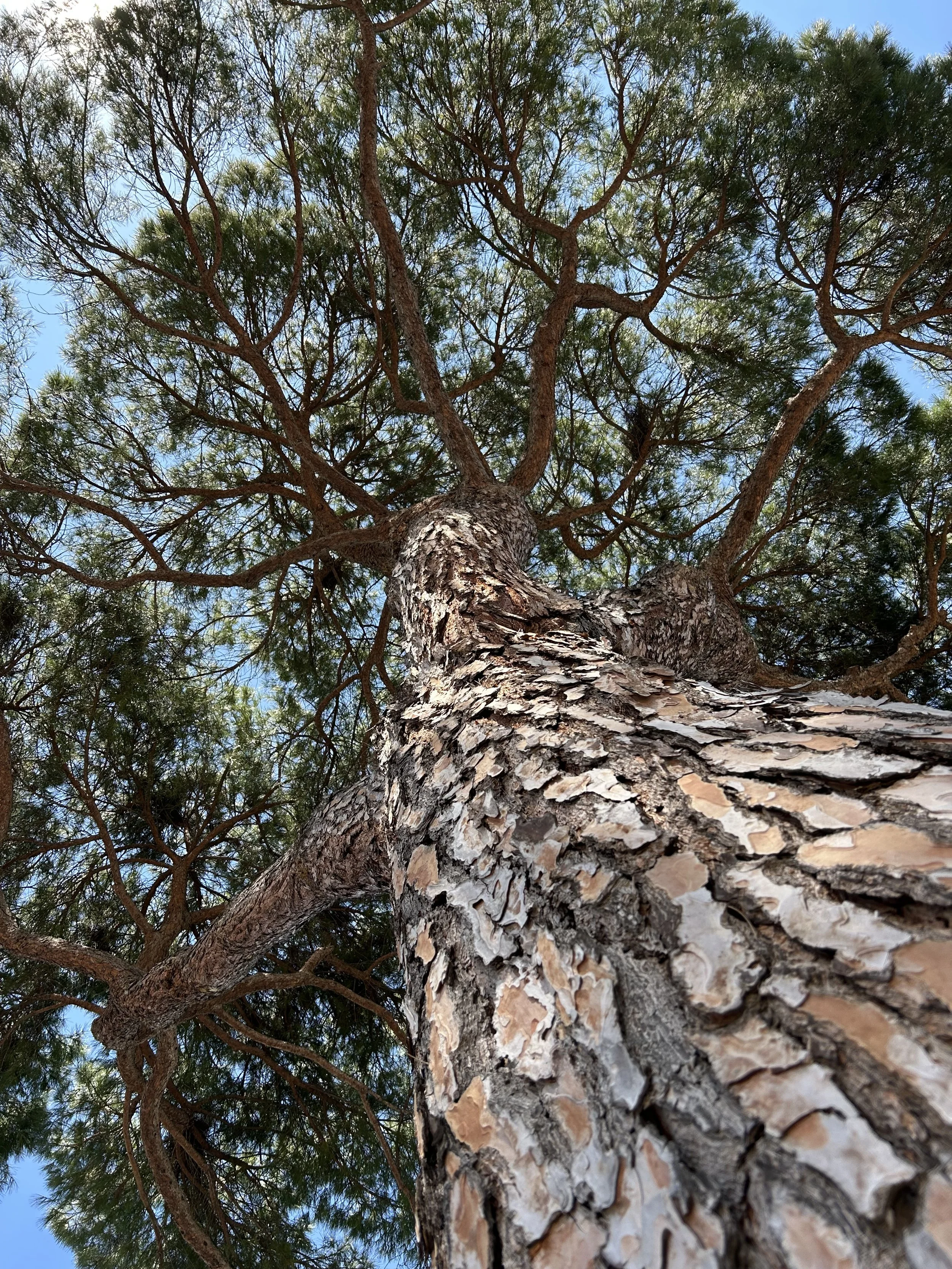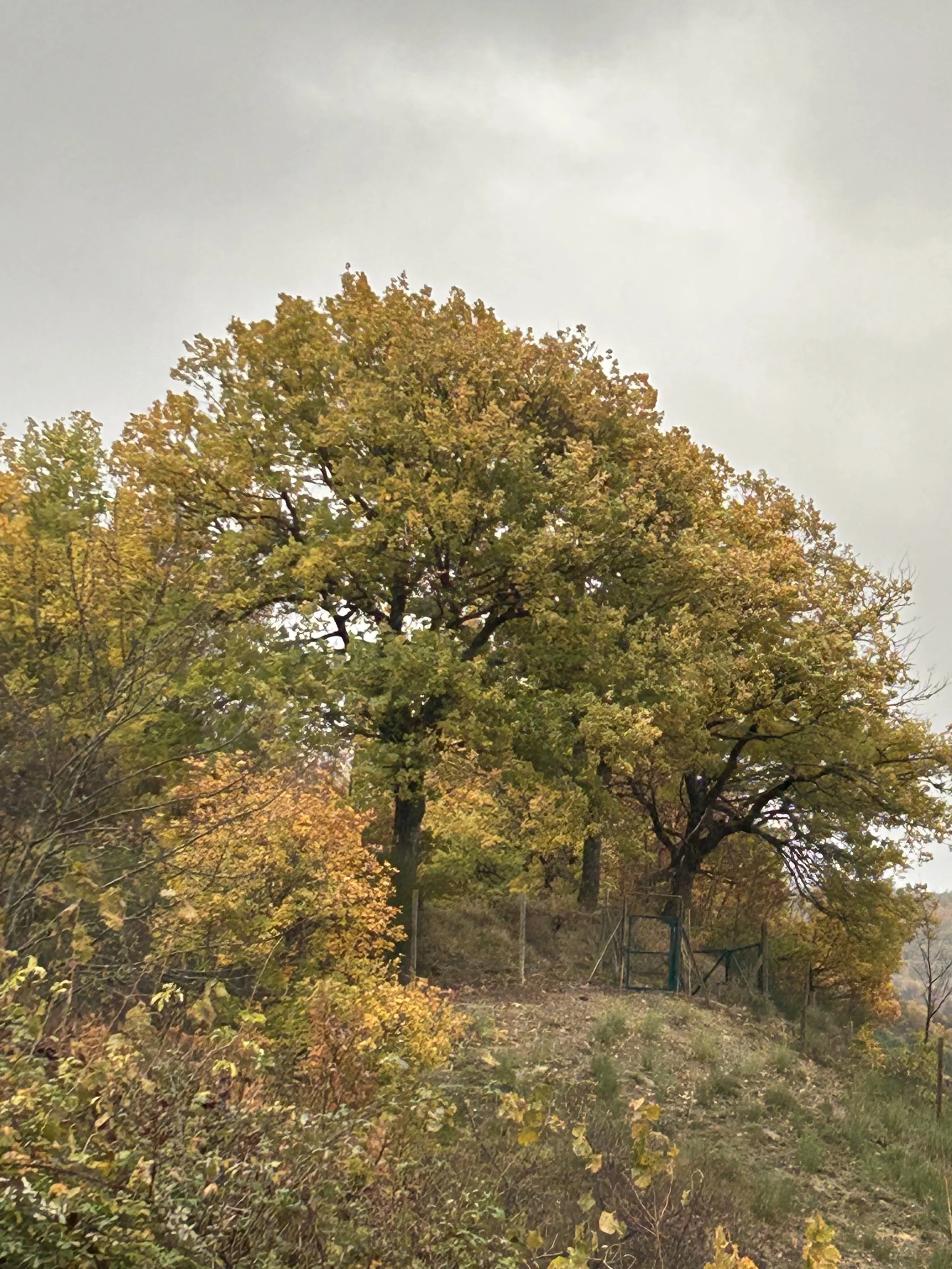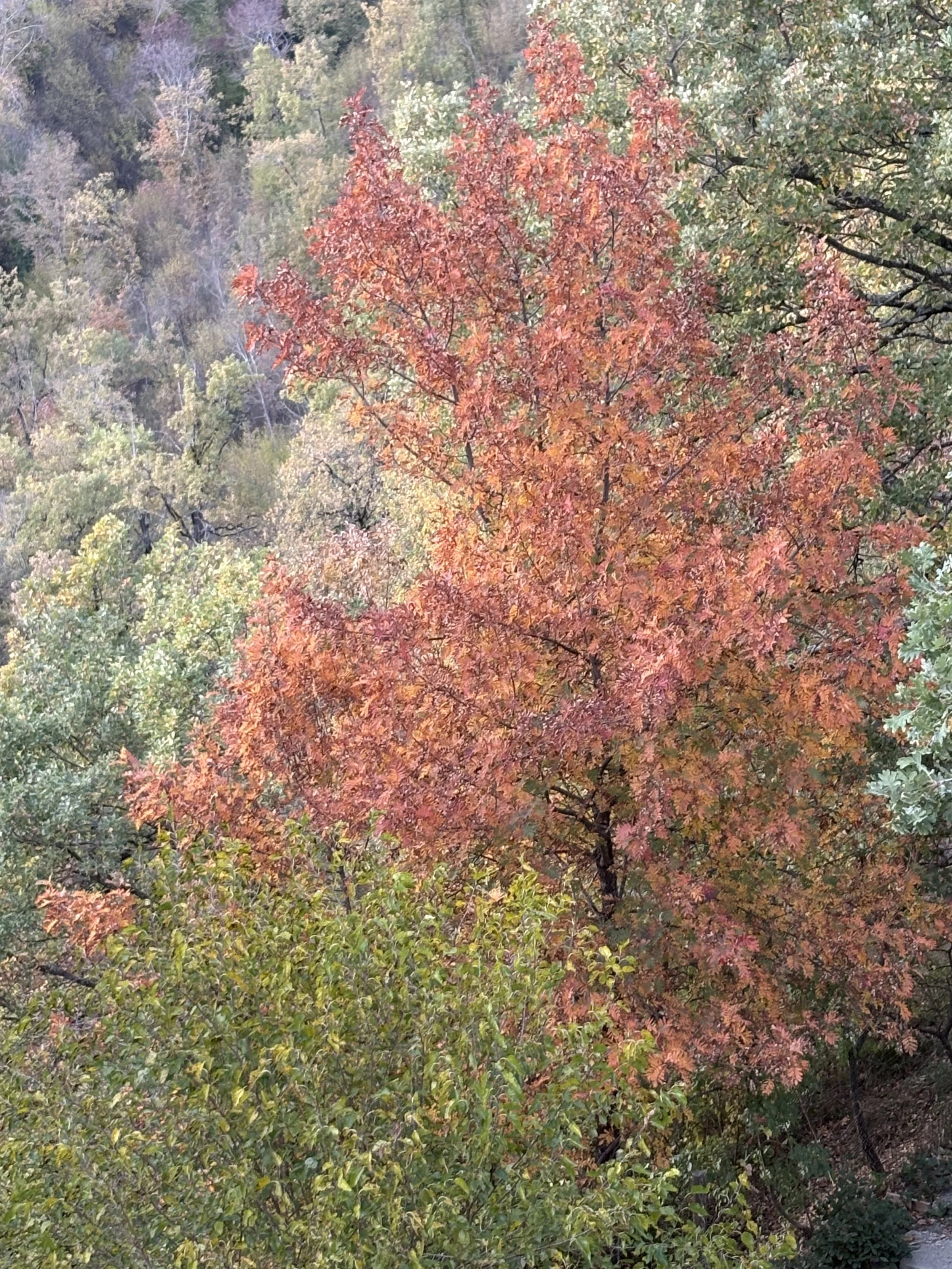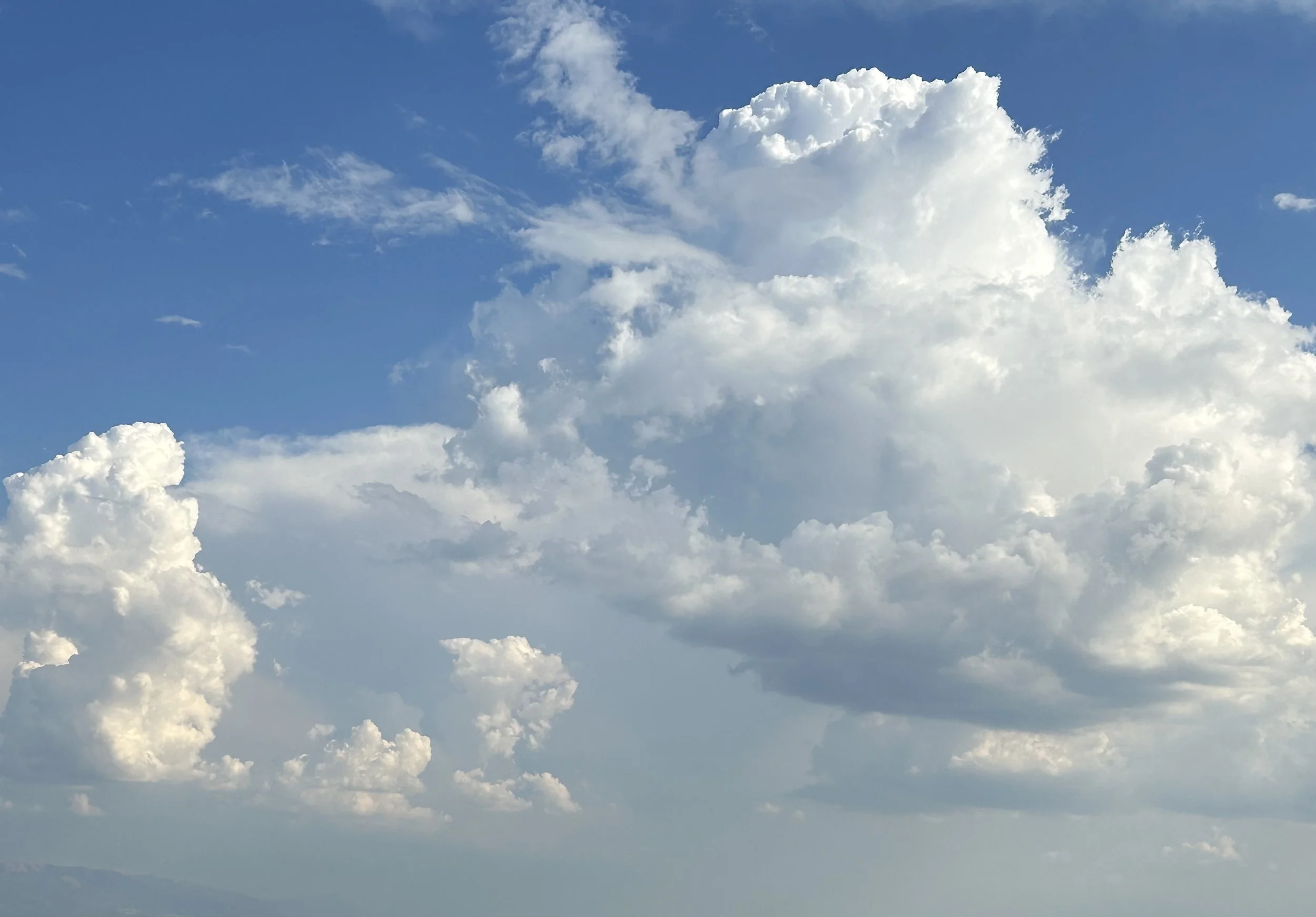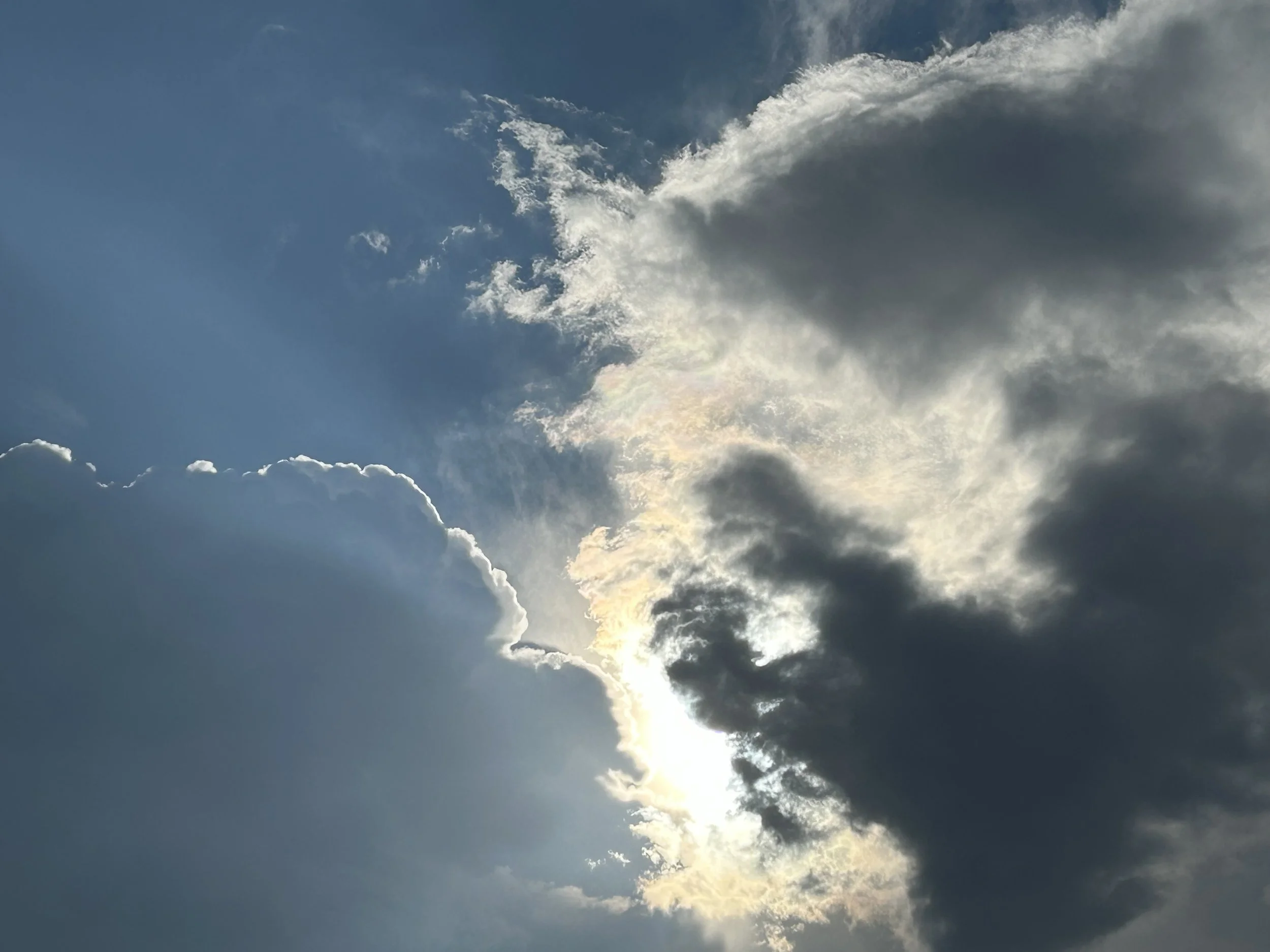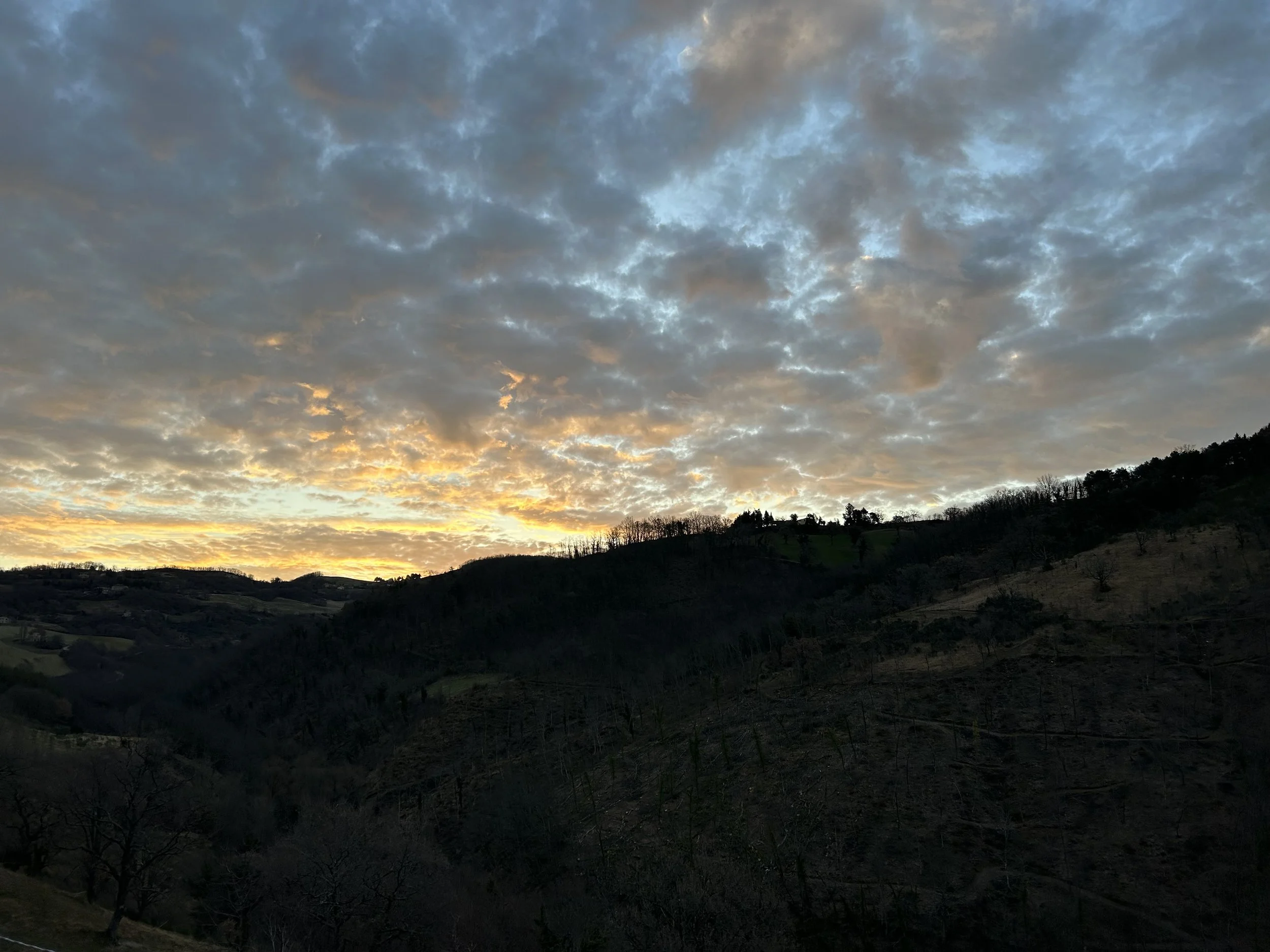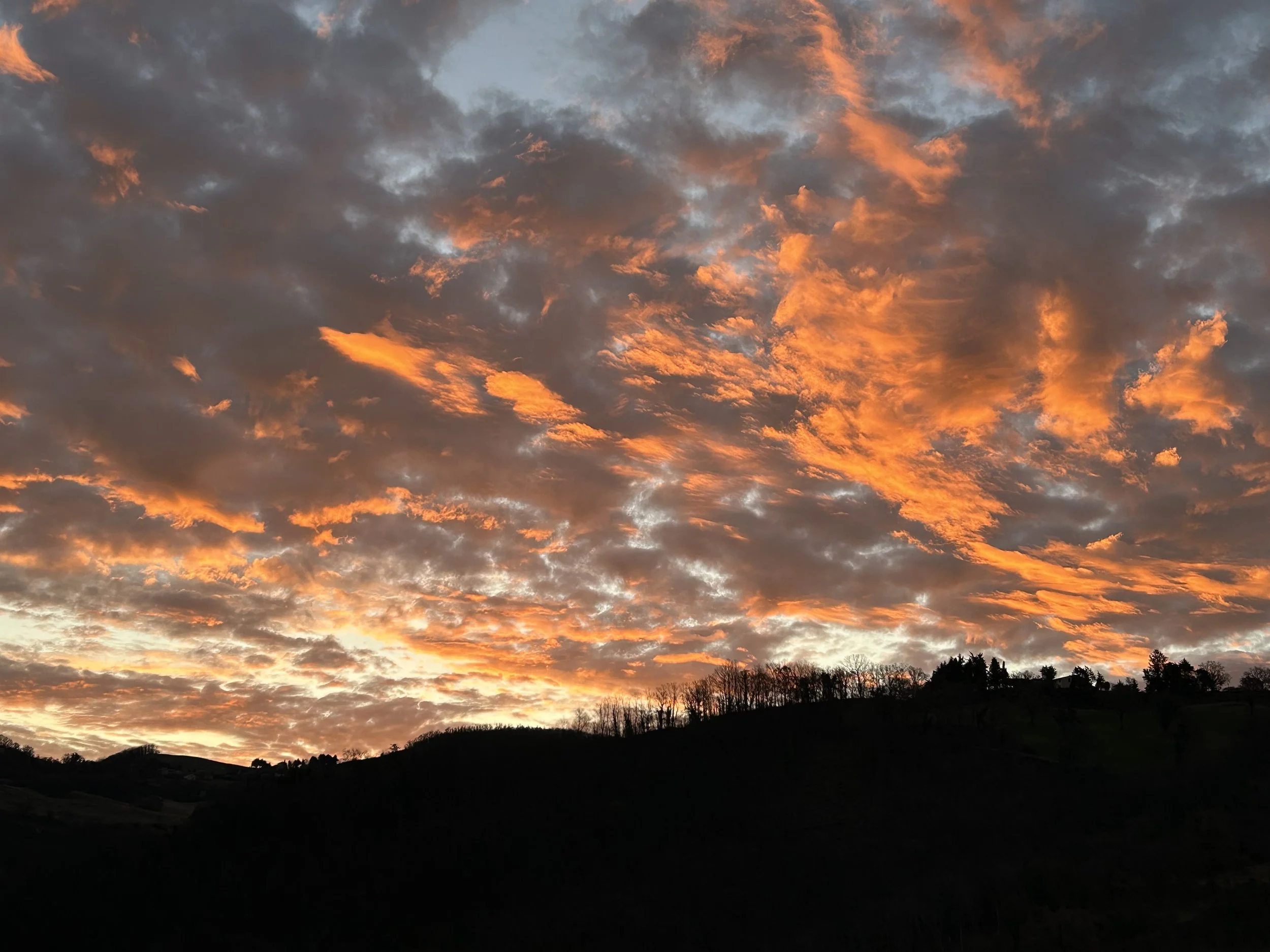Look Up
The dogs made me stop. I had been racing through my day since six this morning. All around me Mother Nature had been flaunting her magnificent late fall wardrobe and I had not noticed. I was in a hurry and we were all tired, immersed in the various harvests. And four missing chickens needed rounding up. But something was making the dogs nuts; they had been barking at the gate for five minutes with increasing hysteria. I let them out and, of course, they disappeared, racing and yipping up the road. There was nothing to do but sit and wait for them. And, still swearing at the dogs for not returning, I sat down on the stone wall and, with nothing else to do, looked up.
It was exactly what I needed at this point in my day.
The hillside was on fire. The colors were unreal. And the full moon was already up. I totally forgot about the dogs and just sat, bewitched by the late afternoon magic of the hillside. But it was the spectacle of the moon, in its ghostly beauty, that held me. The dogs would come back, as would the chickens—they always come home to roost. I began to wonder what all my rushing around was about. I sat on the wall until dark when the family returned from feeding and bedding down the donkeys. And we sat in grateful silence on the wall with the moon.
I should have stopped sooner in my day to look. THIS is the magic which keeps me sane. And I began to realize—in spite of previous rants—that I don't have exclusive rights to viewing absolute beauty because I live in the country. This moon is shining, the trees are announcing the change of seasons in every city, even in prisons or places devastated by war and famine. No matter how little we have or how crazy our lives, we all are enveloped in an impressionist painting if we just look up. We all share the brilliant sunlight, the ever-changing sky, the magical phases of the moon.
A close friend, someone who patiently listens to my monologs on country living, sent me the above photo while visiting Indianapolis. A flaming tree and a pure blue sky with an impossibly perched bird nest at the top; a magnificent insistence on the change of season. City trees are a wonder, emerging from the cement but still huge and full of vigor.
An umbrella pine tree on a busy street in Assisi.
I lie on a bench underneath it while waiting for my weekly ride home.
One need not travel to find “nature”. Just look up. I become enraged when I hear advice to get out into nature in order to feel better—as if nature is somewhere else. That advice continues the folly of seeing the natural world as a resource rather than recognizing that it is who we are. If we feel more balanced because we take a walk in the park, it is not solely because we got out into nature but primarily beause we also took time out from a stessful day. It is about stopping from the constant rush forward or obsessing about what was behind. When we walk away from the computer to be fully in life - be it hiking in the mountains, meditating in a monastery, or dancing wildly to music in our apartment - we are healthier, our cortisol levels (which measure stress) are lower. When we are fully present in our bodies, in the moment, we become free. We are the running, singing, loving, laughing, contemplating, creating, exploring, hunting bipeds of the woodlands and the plain. That is our inheritance.
And the sky, the sky is our cathedral, it holds our dreams. There are the infinite variations of the clouds. Something I could look at for hours... if I give myself the time to look up.
And beginning the day is the sunrise. Even with ambient city light anyone can sit with the dawn. To acknowledge it connects us with people everywhere and throughout time. More than that, it plugs us into the rhythm, the cycling, of the natural world, which we all need.
November 18 2025 ©www.thesubversivefarmer.net
In a previous lifetime, Zia Gallina worked as a botanist for the National Parks Service, on the C&O Canal outside of Washington D.C. (lecturing on wild indigenous and naturalized medicinal and culinary plants). She was also an adjunct professor teaching biology and environmental science at American University, Washington D.C. But she has always been a champion of small-scale biointensive farming, tagging behind Mother Nature, trying to stay as close as she can get.
